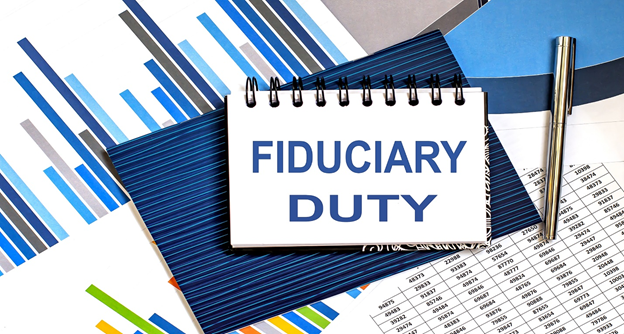What is a Responsible Entity?
A responsible entity is a licensed body that runs a managed investment scheme in Australia. It acts as a trustee and a manager for the investment scheme it operates. The investment scheme needs to be registered. All responsible entities in Australia need to be publicly listed. There are also specifications regarding the net tangible assets it has to hold. It usually depends on the value of the investment scheme's assets. A responsible entity must exercise reasonable diligence and act honestly towards the investment scheme.
Summary
- A responsible entity is a licensed trustee and manager of a managed investment scheme in Australia.
- Responsible entity assesses the suitability of the investments held, and it has the power to propose investments accordingly.
- Earmarking ensures the availability of funds for required purposes and protects the funds from getting utilized elsewhere.
Frequently Asked Questions (FAQ)
What are the services offered by a Responsible Entity?

Image source: © Allisgood76 | Megapixl.com
The following services are offered by a responsible entity (RE):
- It takes care of registering the managed investment scheme.
- A responsible entity makes all offer documents and disclosures.
- All scheme related to the responsible entity plans designing and compliance
- A responsible entity has to monitor compliances with the Corporations Act, scheme terms, and other compliances as applicable to the investment scheme.
- The responsible entity has to liaison with the securities exchange commission for the scheme.
- It has to manage obedience to judicial and supervisory necessities.
- A responsible entity also acts as a custodian for the scheme.
- It is responsible for any external service providers; it also has to monitor their performance.
- All back-office functions related to scheme management are taken care of by a responsible entity. It can be in-house or outsourced.
- The responsible entity takes up all administration duties of the scheme.
- The entity also takes care of Fund related accounting.
- All registries related to units of the scheme are done with the responsible entity.
- It may also offer a valuation for the portfolio.
- The entity may do reporting for unitholders.
- Other than the above, it can take care of complaints monitoring and redressal.
Who would pursue the services of a responsible entity?
The services of a RE are pursued often by:
- Regulated Superannuation funds, Debenture issuing corporations, etc., may seek an RE as they set up managed investment schemes.
- Promoters or investment managers who want to establish a managed investment fund may look for an RE.
- Any investor is looking to replace an existing RE.
- An existing RE's who wishes to be substituted because of an operational reason.
- Unitholders of the scheme entrusted to an RE who seek to get scheme related reports may approach an RE.
- Any investors seeking scheme related complaint redressal may go to an RE.
What are the Powers of a Responsible Entity?
A responsible entity, although acts as a trustee and manager. It still has some powers regarding the scheme-
- It helps in deciding upon the nature, structure and objectives of the scheme.
- The managed investment schemes anticipated the RE also decides duration.
- It has the powers to take decisions based on the circumstances and requirements of the beneficiaries.
- RE assesses the suitability of the investments held, and it has the power to propose investments accordingly
- It can take care of diversification of investments held
- RE decides all decisions related to funding administration, including commission, charges payable.
- It has the power to vary investments based on taxation consequences on the investment.
- It can also change investment position based on potential impacts of inflation or deflation.
What are the duties of a Responsible entity?

Image source: © Stokdrozdirina | Megapixl.com
All responsible entities have the following duties-
- A Responsible Entity is obliged to act honestly and always work for the best interest of investors in the managed investment. It is expected to act like a reasonable person would.
- A Responsible Entity must treat all members who hold interests of the same class equally, and those who hold different classes must be treated fairly. The Responsible Entity must not use the private information they encounter as part of their duties, either for their advantage or to the detriment of the scheme members.
- A Responsible Entity must ensure their registered scheme has a constitution and compliance plan, and both must meet the relevant legal and regulatory requirements.
- Any property of the Responsible Entity must be kept separate from scheme property, which must be clearly identified as scheme property and regularly valued.
- The Responsible Entity must report any breach of the Corporations Act that relates to their managed investment scheme, which is likely to have a materially adverse impact.
- A duty of the Responsible Entity under the Corporations Actoverrides any conflicting duties an officer or employee of the Responsible Entity has.
- The Responsible Entity and its associates are not entitled to vote on a resolution of the schemes' members if they are interested in the resolution or matter, other than as a member. However, if the scheme not listed RE shall not vote on resolutions.
What are the benefits a responsible entity provides?
- By engaging a RE, the following benefits may be obtained:
- Promoters do not need to promote or market the projects under the scheme.
- Responsible entity assures acting in the best interest of investors.
- Promoters are not required to manage the scheme.
- The RE takes all regulations, and compliances care.
What are the disadvantages of appointing a responsible entity?
Appointing a Responsible entity comes with added costs to investors. The merger of a trustee and a manager's roles causes conflicts in decision making. Both the functions are important but separate. Mixing both and using a single entity for it can bring up agent-principal conflicts. Performance as a manager and as a trustee cannot be separately identified. There is a scope of hiding faults in these distinct functions. It often happens in mutual funds.
 Please wait processing your request...
Please wait processing your request...